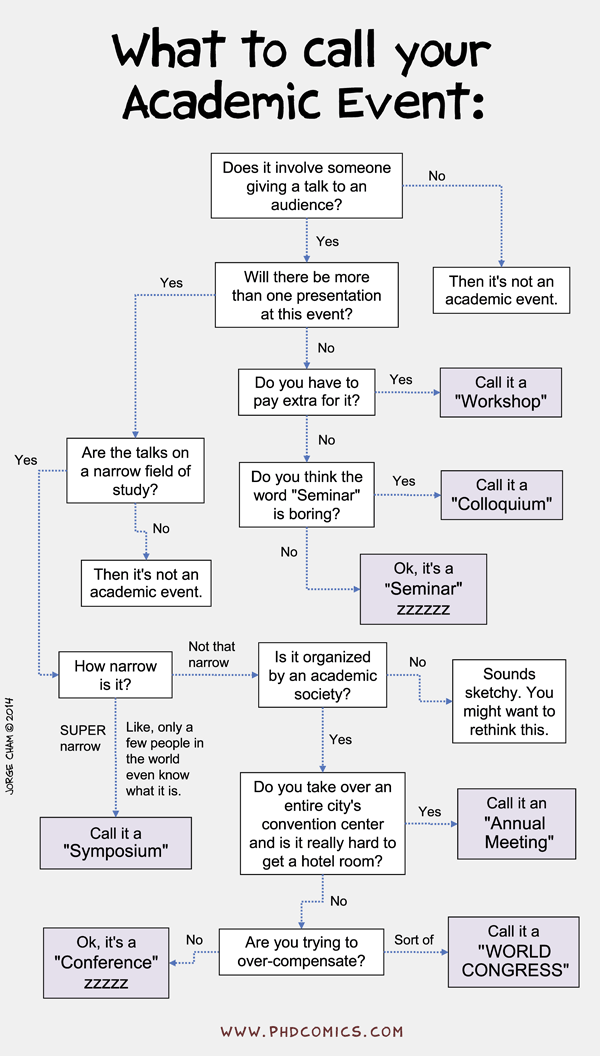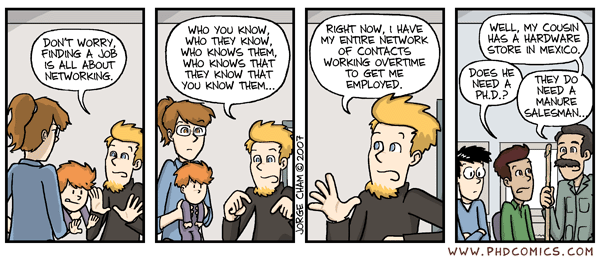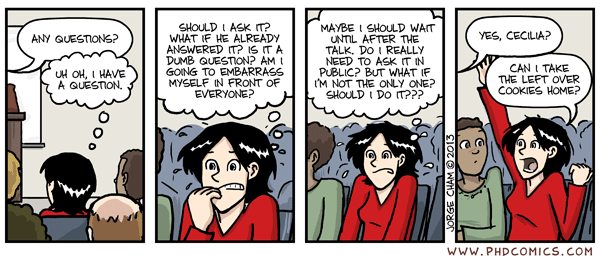Table of Contents
Hosting seminars, networking, and asking the right questions
This is a short to-do list and listing of discussion topics to cover during the Student Led Symposia at Bath in 2023.
Hosting seminars

As part of your journey as PhD students, you may have the opportunity to host and organise seminars. This can include departmental seminars, conference/workshop co-organising, postgraduate student seminars, and so forth. Here are some items to think about.
- Contacting and inviting the speakers: when to do it, how to do it, how to phrase it, …
- Finding a suitable room: what makes some rooms good/bad? how do you book a room? what tech is available in each room?
- Planning the day: who will the speaker meet beforehand? who will they meet after? do you arrange for students and staff to meet?
- After the day: how do they claim for expenses? what expenses can be covered? are there further networking opportunities after?
Networking

Academia (and its 'cousins', like industrial research) is a surprisingly small place. See e.g. the Math Genealogy site. Networking is the process of building-up a list of contacts. These contacts can help you by:
- Helping you to reach out to further contacts
- Helping you in your career
- Helping you in your research work
- Helping you to make friends (particularly other postgraduates)
- Helping you to help others connect to others (!)
Obviously as young students, you may feel tentative about networking. How do you begin to network?
- Go to events, including: (i) seminars; (ii) conferences; (iii) departmental and university events. Even if you don't know what to do or how to do it, this is the first step. Inform yourself on what seminars or conferences exist and consider how they might help you network.
- Ask your supervisor or staff to help you (“I'd like to visit the US to work in X, Y, Z. Can you put me in touch with anybody who might help me?”)
- Contact people yourself (“Dear X, I very much enjoyed your seminar last week. I was wondering if…” or “Dear X, I was referred to you by A. I was wondering if…”)
What do I do in a seminar?

- Before/during the seminar: investigate who the speaker is. Look up their academic website and scan their publications. Look them up on the Math Genealogy website and learn about their history.
- During the seminar:
- you're in good shape if you understand the first 15 minutes.
- be OK with not understanding; accept that this is completely normal and it's not 'your fault'.
- Asking questions:
- Put yourself into the host position: you must always be ready to ask a question…but what if you're utterly confused?
- Beginning from the start, try to find at least one question by the end of the talk. Generic questions can be:
- Extensions and generalisations: “What's next for your work?” or “Thank you for the interesting talk on X. Are you now thinking about extension Y?”
- Personal research journey: “How did you get to this work?” “Is it difficult to work together with experimentalists and what kind of challenges do they bring?”
- More details: “I didn't understand the graph on slide 24. Can you explain what the axes mean and what we're supposed to take from this?”; “What numerical scheme did you use for these numerics? Was it hard? Does it take long to compute?”
- Fleshing out stuff they mention: “You mentioned briefly on slide X that this was hard to do. Can you say more about that?”